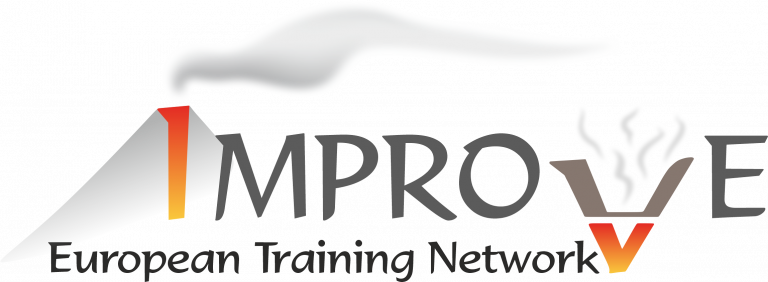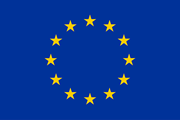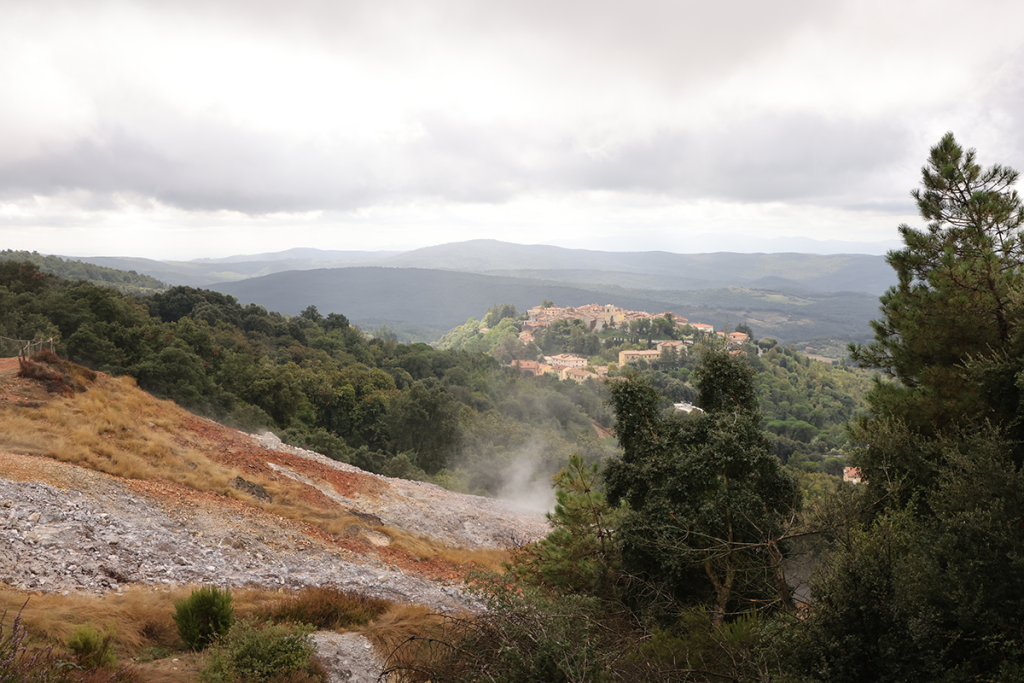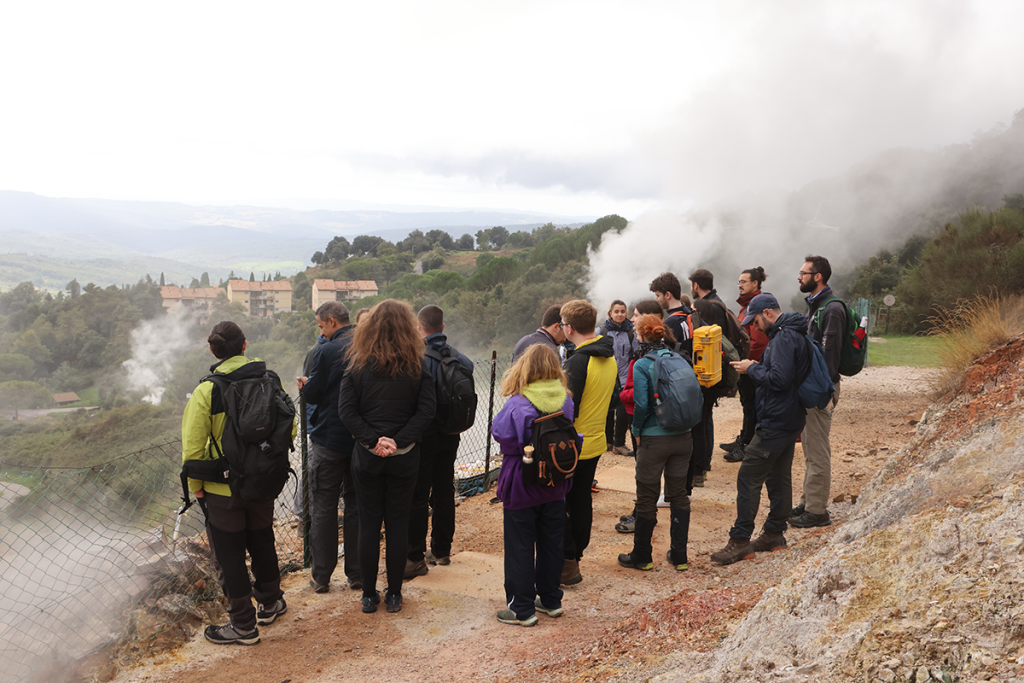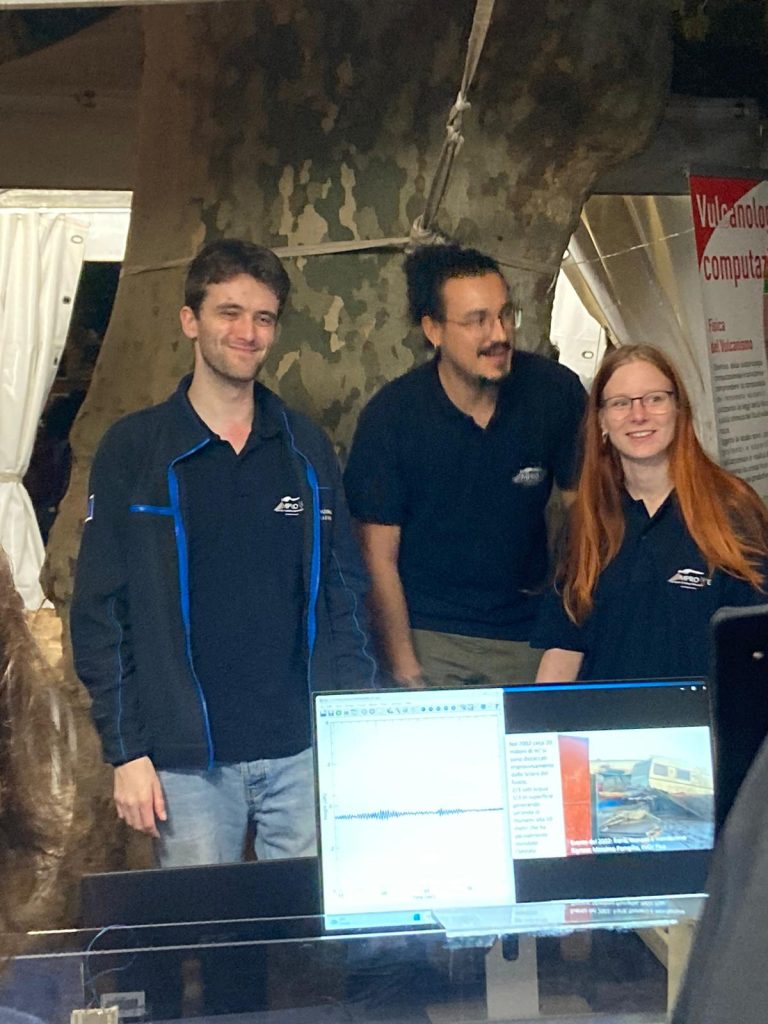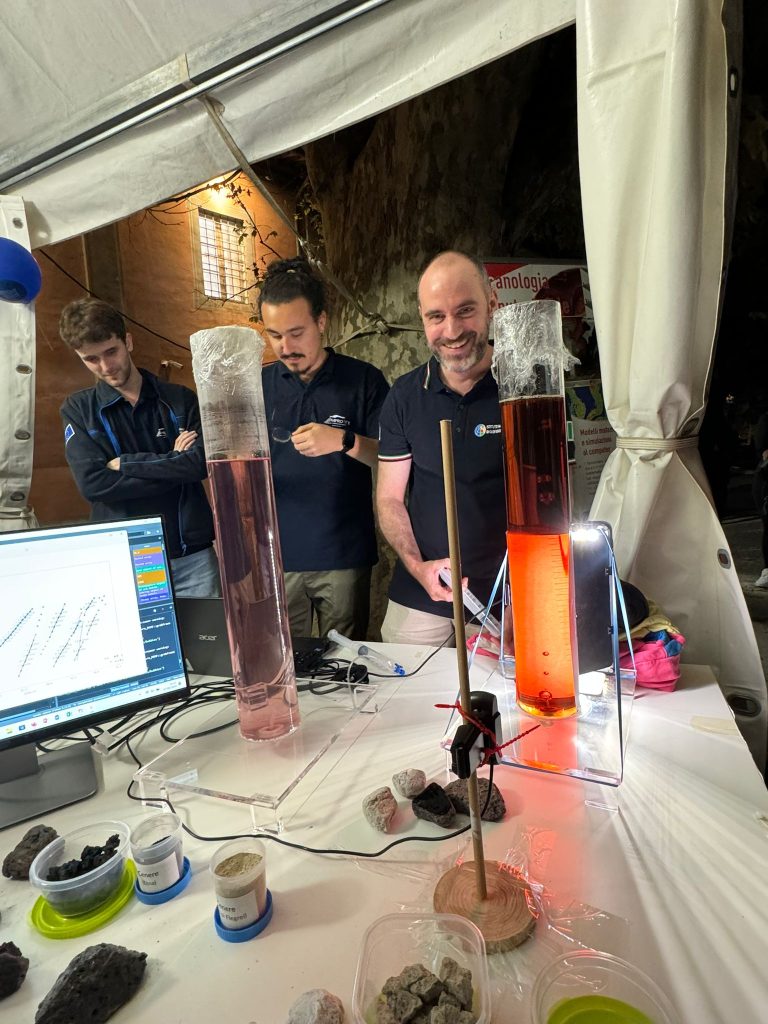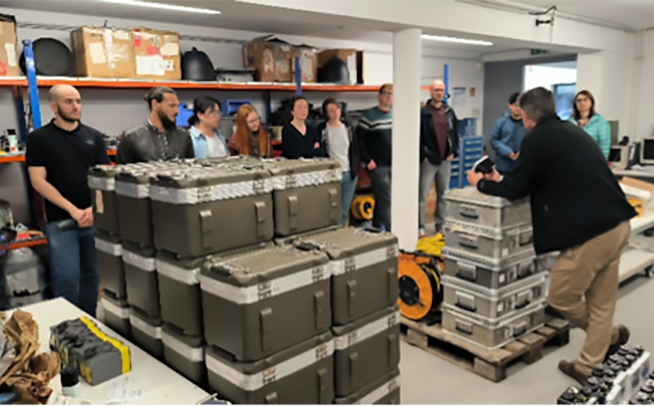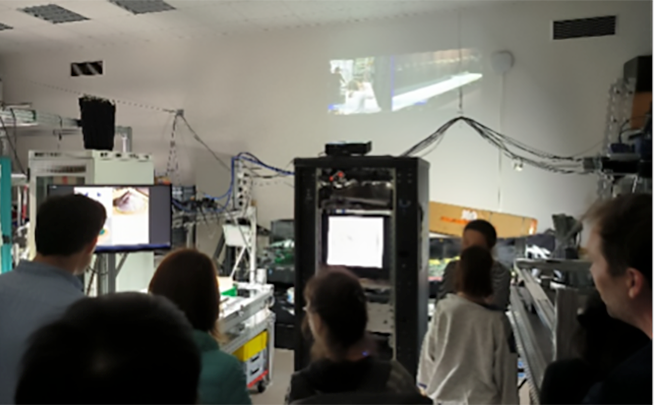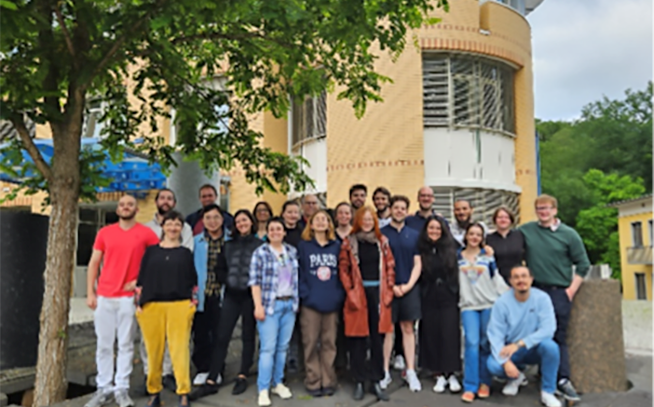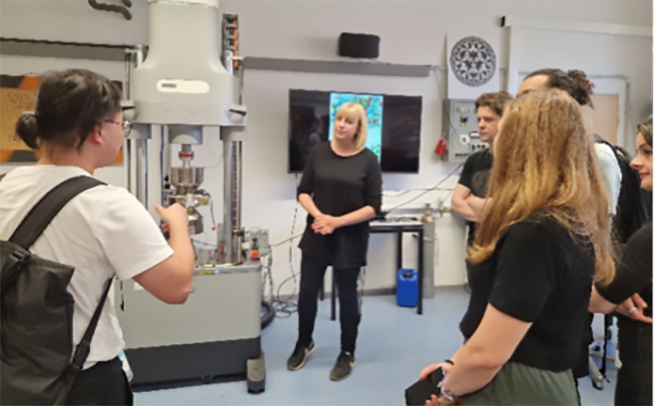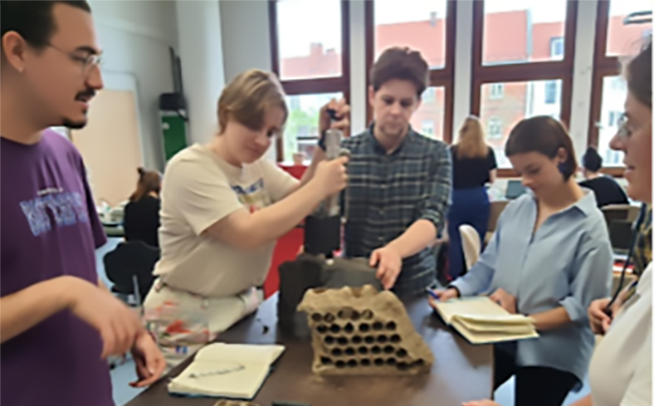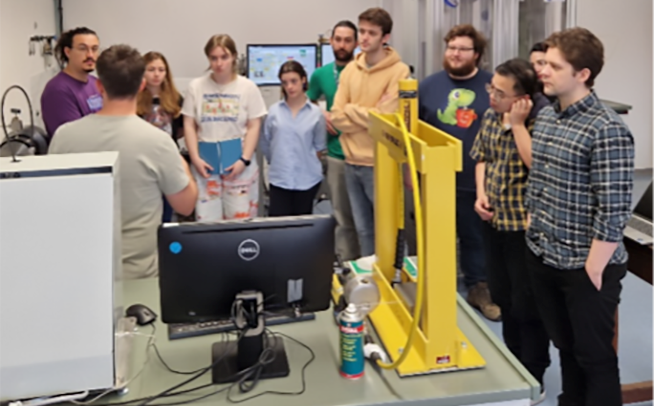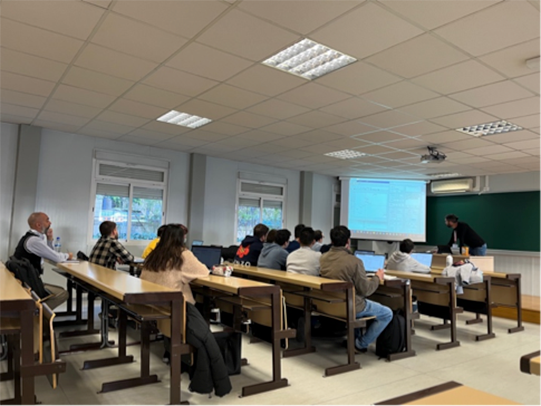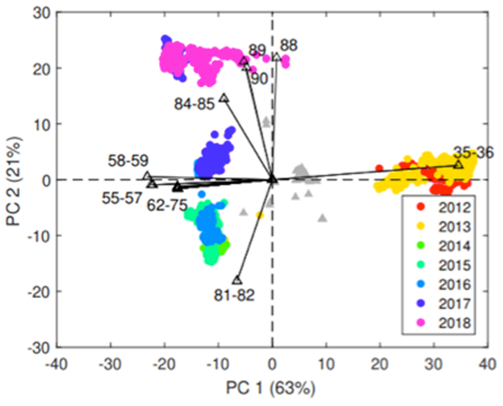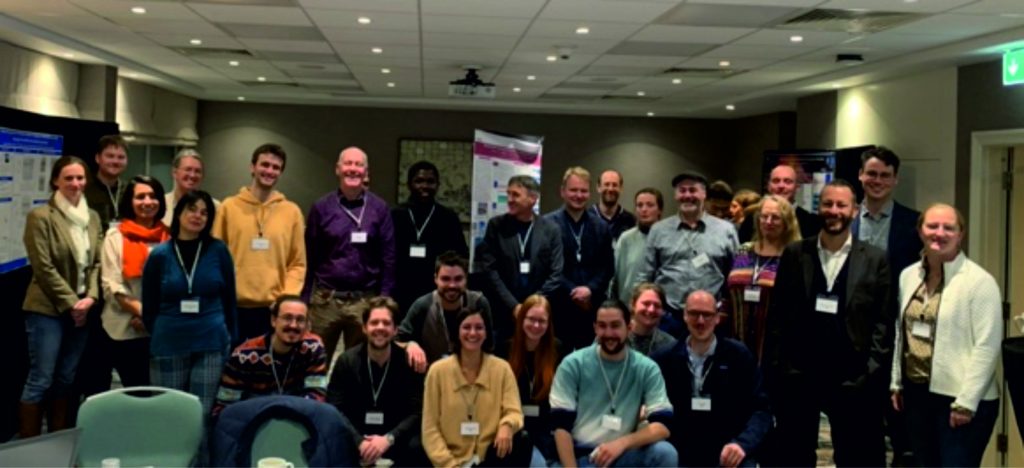
On November 21, 2024, the Dublin Institute for Advanced Studies hosted a joint workshop on magmatic geothermal systems in Dublin, Ireland, in collaboration with EPOS (European Plate Observing System, www.epos-eu.org), and KMT (Krafla Magma Testbed, https://kmt.is). The workshop brought together 33 participants, including experts from industry, academia, and IMPROVE Early Stage Researchers (ESRs), to discuss challenges and innovations in the emerging field of geothermal energy. In particular, the workshop focused on addressing the needs of the geothermal energy industry working with high-temperature and superhot geothermal systems, fostering collaboration and knowledge exchange between science and industry.
The workshop featured presentations from the three involved major initiatives KMT, EPOS, and IMPROVE. Keynote speakers included Bjarni Pálsson (Landsvirkjun, and President of the International Geothermal Association) on superhot geothermal energy opportunities, Yan Lavallée (Ludwig Maximilian University of Munich) on academic research driving industry solutions, and Helen Doran (Project Inner Space), who provided a global perspective on geothermal energy prospecting.
A panel discussion, chaired by Anne Obermann (ETH Zurich), explored industry challenges and innovations in magmatic geothermal systems, with contributions from experts representing KMT, ENEL (Enel Green Power), Orkuveitan, and RML. Additionally, IMPROVE ESRs presented brief elevator pitches and participated in a poster session, showcasing their ongoing research in the field.
The breakout sessions focused on the future of geothermal energy, collaboration between academia and industry, and the tools and methodologies needed to advance geothermal research and development.
This workshop facilitated crucial dialogue between industry professionals, researchers, and infrastructure experts in the field of magmatic geothermal systems. By bringing together diverse perspectives, the event aimed to accelerate innovation and address key challenges in harnessing geothermal energy from magmatic sources.
The inclusion of both established experts and Early Stage Researchers (ESRs) highlighted the importance of bridging industry needs with emerging research and of cultivating new talent in the field.
The success of the workshop prompted the organizers to consider convening a second event, which will likely be organized within the framework of the EPOS–KMT collaboration. IMPROVE ESRs and other IMPROVE personnel will receive specific invitations.
